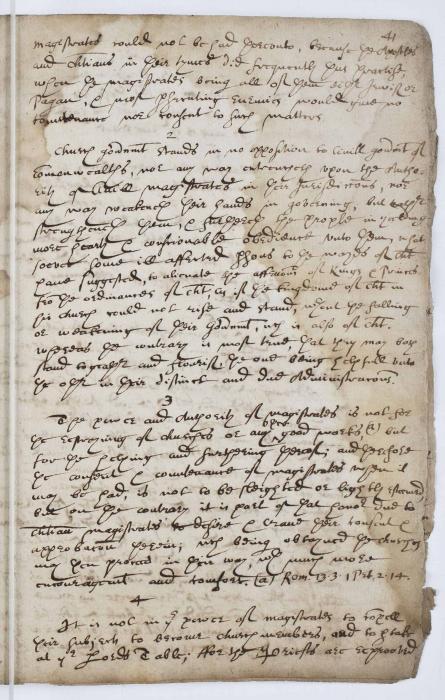
41
magistrates could not be had thereunto, because the Apostles
and chtians in their tymes did frequently thus practice,
when the magistrates being all of them either Jewish or
Pagan, & not psecuting enemies would give no
countenance nor consent to such matters.
2
Church govnmt stands in no opposition to civill govnmt of
Commonweaths, nor any way entrencheth unpon the Autho=
rity of Civill magistrates in their Jurisdictions, nor
any way weakeneth their hands in governing, but rather
strengtheneth them, & furthereth the people in yielding
more hearty & conscionable obedience unto them, what
soever some ill affected psons to the ways of cht
have suggested, to alienate the affecions of Kings & Princes
from the ordinances of cht; as if the kingdome of cht in
his church could not rise and stand, wthout the falling
or weakening of their govnmt, wch is also of cht.
whereas the contrary is most true, that they may both
stand togeather and flourish, the one being helpfull unto
the other in their distinct and due Administracions.
3
The power and Authority of magistrates is not for
the restraining of churches or any ^other good works(a), but
for the helping and furthering thereof, and therefore
the consent & countenance of magistrates when it
may be had, is not to be sleighted or lightly esteemed,
but on the contrary it is part of that honor due to
chtian magistrates to desire & crave their consent &
approbacion therein; wch being obtained the churches
may then proceed in their way, wth much more
encouragemt and comfort. (a) Rom.13.3. 1 Pet.2.14.
4
It is not in ye power of magistrates to compell
their subjects to become church members, and to ptake
at ye Lords Table; For the Priests are reprooved
